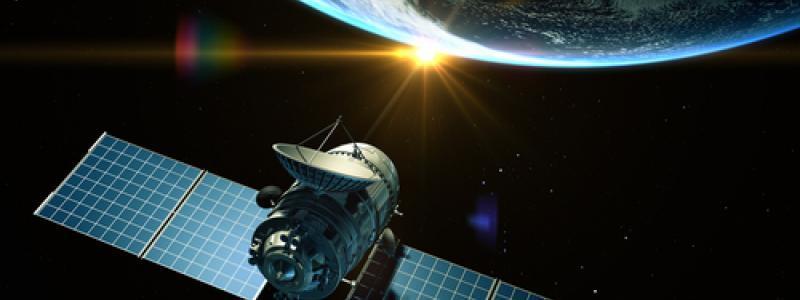OneWeb: Using Satellites to Bring High-Speed Internet to Underserved Locations

During a hearing regarding the status and future of the commercial satellite industry, OneWeb testified before the Senate Committee on Commerce, Science and Technology, along with other companies like Intelsat, SpaceX, and ViaSat. As revealed by Greg Wyler, the founder and executive chairman of OneWeb, the company is looking to fully pursue its plans of providing high speed Internet connectivity, not only to underserved markets but also to the most inaccessible places around the world, by taking full advantage of satellite technology. Of course, OneWeb also qualified that it is aiming to achieve its mission with sustainability in mind, and without leaving loads of satellite debris in outer space.
One of OneWeb’s objectives is to be able to provide an Internet connection with a speed of 2.5 gigabits per second (gbps) to a home based in a rural location. By May of next year, the firm is expecting to launch its first rocket, and then start offering service in Alaska. The coverage will then be constantly improved in order to serve more customers by 2020.
Back in June earlier this year, the company had successfully obtained permission from the Federal Communications Commission (FCC) in order to roll out a worldwide network of more than 700 low Earth orbit satellites that utilize the Ka (20/30 GigaHertz) and Ku (11/14 GigaHertz) frequency bands for the sole purpose of establishing a true worldwide Internet network.
During the hearing, Wyler also stated that part of OneWeb’s goal is to make Internet connectivity affordable, especially for consumers who only earn about two dollars every day. The company is seeking the help of its regional partners in order to determine a budget friendly pricing that is just right for a specific market’s users.
A few months ago, OneWeb had already managed to start erecting a satellite manufacturing plant located in Exploration Park in Florida. When completed, this facility should be able to build about 15 satellites on a weekly basis. OneWeb has had some help, of course. It had raised close to a couple of billion dollars in equity courtesy of shareholders that include chip maker Qualcomm, the SoftBank Group, the Virgin Group, Intelsat, Hughes, Coca-Cola, and the Airbus Group. Paul Jacobs (executive chairman of Qualcomm) and Sir Richard Branson (of the Virgin Group) currently sit on the OneWeb board.
OneWeb is also exploring new ideas in maximizing Internet connectivity. Wyler has mentioned that the company has been working on an antenna design that can be easily attached to a vehicle. That antenna should provide instant LTE and even 3G connectivity not only for the vehicle’s passengers but for any user within a specific signal radius. According to OneWeb, this set up could prove handy for rescue efforts, especially in offering emergency wireless service in times of calamities.
Related Blog Articles
- India is Now the Second Biggest Mobile Market in the World
- Charter: Targeting To Be More Than Just Another MVNO
- Report: Singapore Has The Fastest Mobile Download Speeds
- YouTube Kids Gets Updated With Expanded Controls and Personal Profiles
- Apple’s Third Quarter Results Suggest Healthy Sales Despite Worries About iPhone 8
- Altice Strikes MVNO Agreement with Sprint
- Google Search and Google Maps Will Soon Include Restaurant Wait Times
- Report: Third Quarter Smartphone Shipments Reach 39.5 Million Units in the US
- Apple Wanted to Assist the FBI in Accessing Texas Shooter’s iPhone
- Chicago is Proposing A Fine Of Up To $500 For People Texting At Crosswalks
Related Blog Posts
- Report: AT&T facilities are used for NSA surveillance program
- Tips for achieving a smartphone detox this summer (or at least for a few days)
- Instagram hits 1 billion users; launches new IGTV video uploading service
- Facebook introduces game shows platform, with live interactive vids
- California Democrats combine two separate net neutrality bills


 Menu
Menu